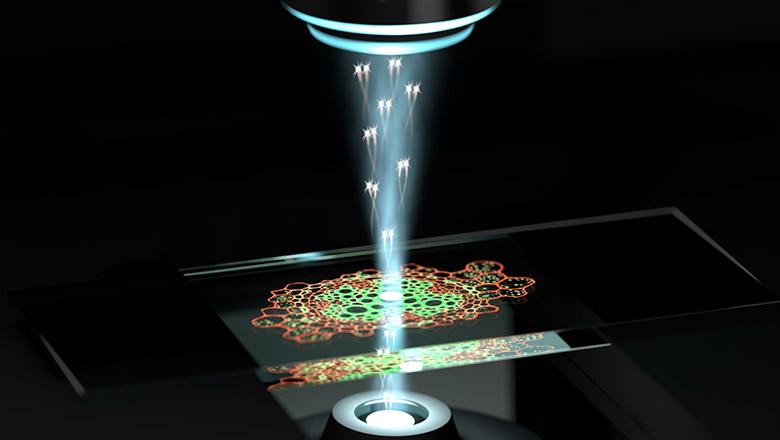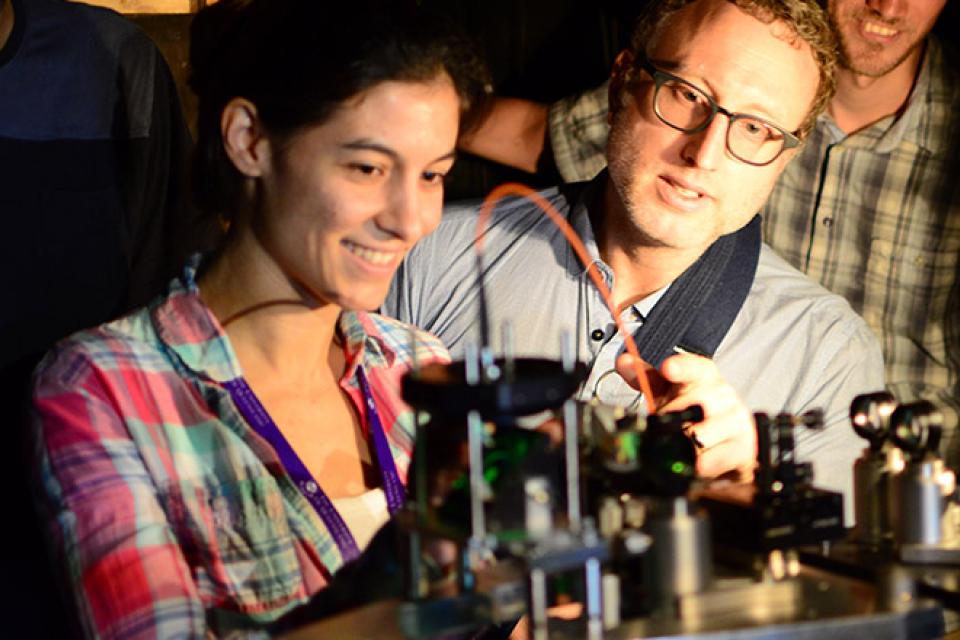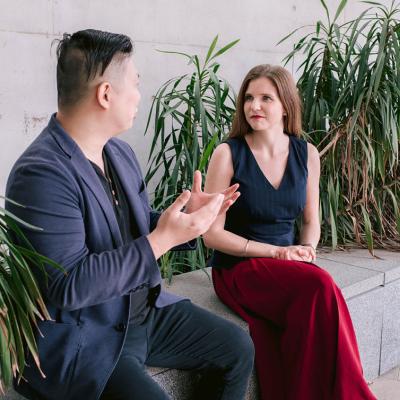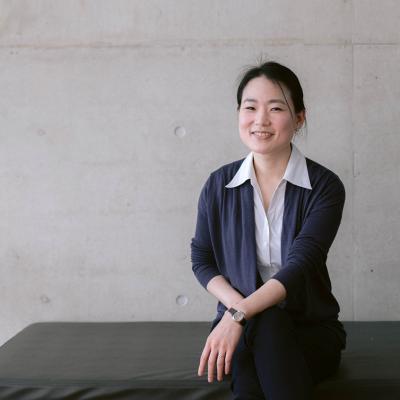Why study quantum technology? A career in quantum technology will see you at the cutting edge of the emerging quantum field, researching and developing technologies capable of changing the future of computing, communications, cryptography, medical technology, transport systems and beyond.
In the quantum technology courses available at The University of Queensland, you’ll gain the skills, knowledge and confidence to solve some of the world’s most pressing issues, with topics including:
- how to design robust quantum technology products
- the working principles of quantum information and quantum computing
- the fundamentals of solid-state technology, understood in terms of quantum mechanics and statistical mechanics
- the physics of lasers, atom-light interactions and the quantisation of the electromagnetic field
- advanced techniques in computational physics and machine learning
- real-world and practical research experience in applied or theoretical research projects.
What is quantum technology?
Put simply, it's an emerging field of physics and engineering that encompasses a broad range of devices, materials and information technology which rely on the principles of quantum physics. Advanced quantum technologies exist within technologies we use every day – including your smartphone, which has semiconductors that use quantum physics to operate. The next revolution in quantum technology will harness all the properties of quantum systems, such as entanglement, to develop technologies beyond what can be realised today.
The burgeoning world of quantum technology offers many avenues for experimentation and innovation. We’ve collected a few examples from UQ that showcase how quantum technology products and research can be used to improve the way we live and how it will play a significant role in the world of technology in the future. These are just a few highlights of the innovative and future-focused research opportunities available to academics and professionals in our Master of Quantum Technology and related programs.
UQ researchers create a quantum microscope
Thanks to research from PhD candidate Dr Catxere Casacio from UQ’s Quantum Optics Lab, a team of UQ researchers have developed a breakthrough quantum microscope that could pave the way for applications in biotechnology, navigation and medical imaging.

Artist’s impression of UQ’s new quantum microscope in action
The microscope is powered by the science of quantum entanglement and is the first entanglement-based sensor with performance beyond the best possible existing technology.

UQ researchers align the UQ-developed quantum microscope
“Entanglement is thought to lie at the heart of a quantum revolution,” says Professor Warwick Bowen from UQ’s ARC Centre of Excellence for Engineered Quantum Systems (EQUS).
“We’ve finally demonstrated that sensors that use it can supersede existing, non-quantum technology."
“This is exciting – it’s the first proof of the paradigm-changing potential of entanglement for sensing.”
This breakthrough opens the door for some wide-ranging technological revolutions, such as:
- a better understanding of living systems
- improved diagnostic technologies
- vastly improved computing power, communications and sensing technology.
UQ-developed ‘ultra ultrasound’ revolutionises the industry
UQ researchers have developed an extremely sensitive method of measuring ultrasound, which could revolutionise everything from medical devices to unmanned vehicles.

A close-up view of UQ’s ultraprecise ultrasound sensors
The technology is the most sensitive ultrasound device ever created and is a major step forward, since accurate ultrasound measurement is critical for a range of applications including:
- medical ultrasounds, such as examining pregnant women
- high-resolution biomedical imaging to detect tumours and other anomalies
- spatial applications, such as sonar imaging of underwater objects or in the navigation of unmanned aerial vehicles.
“Improving these applications requires smaller, higher-precision sensors, and that’s exactly what we’ve been able to develop," says Warwick.
"The technology is so sensitive that it can hear, for the first time, the miniscule random forces from surrounding air molecules.”
Recreating classic art on a quantum ‘canvas’
UQ physicists have recreated famous paintings, such as the Mona Lisa and The Starry Night, on a quantum ‘canvas’ the width of a human hair. The images were projected and photographed on a blob of gaseous quantum matter known as Bose-Einstein condensate.
Dr Tyler Neely from the UQ-based ARC Centre of Excellence for Engineered Quantum Systems says the artworks were originally a fun side project alongside their more serious research.
“We never aimed to do this – we were originally looking to better understand the unsolved mysteries of how fluids flow,” he says.
“We were hoping to gain new insights into how our everyday world arises out of the microscopic quantum world, helping us create new quantum-enhanced technologies."
“But, while we were at it, we just happened to create some of the world’s smallest masterpieces.”

UQ researchers’ rendition of the famous Mona Lisa, approximately 100 microns wide.
The researchers believe these initial images are an impressive demonstration of quantum matter as a brand new material for producing art.
“Although these images are fascinating, extending the creative expression of this medium is the next step,” says Tyler.
“We’re now aiming to collaborate with an artist to help us realise a creative vision for this technology.”
Study the Master of Quantum Technology program at UQ
A recent CSIRO report has recognised quantum technology as an emerging $4B opportunity for Australia. Correspondingly large investments around the world give evidence of a burgeoning quantum-led industry. The Master of Quantum Technology program at UQ is the first of its kind in Australia and has been created to meet a high demand from technology companies worldwide for specialists in the quantum field. This program builds on the outstanding programs in quantum physics for which UQ is internationally renowned.
Here are just a few things on offer from the Master of Quantum Technology program:
- Build on your existing technical qualifications in computer science, mathematics or engineering, and develop a foundation in the principles of quantum physics.
- Develop high-level technical skills and a capacity for creatively solving problems in a complex and high-tech environment.
- In a research setting, you’ll apply your knowledge of quantum physics theory toward research projects that make a difference.
- Graduate with the skills and confidence to make you a sought-after specialist for the many emerging quantum technology jobs.






